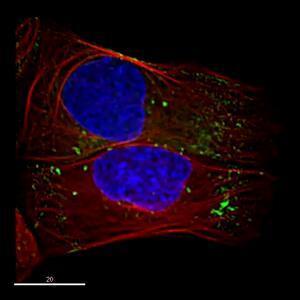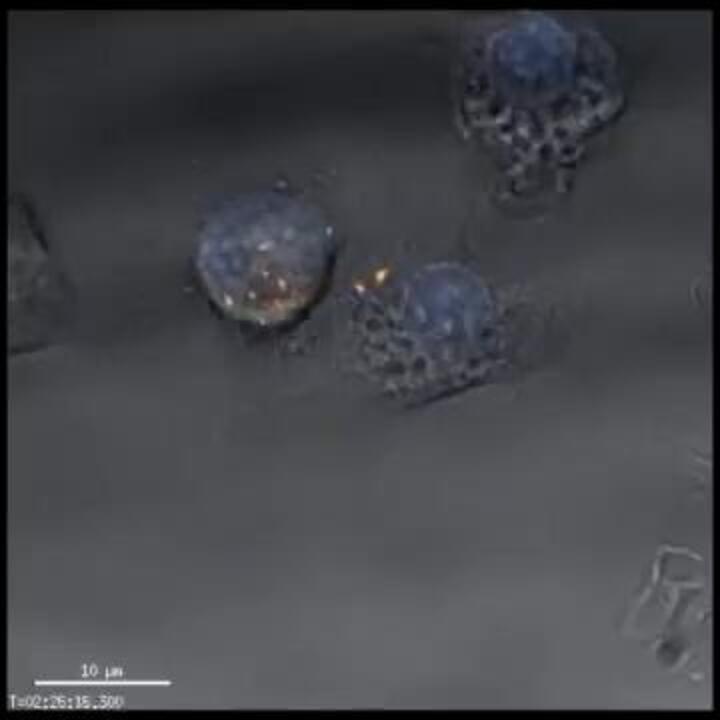Search Thermo Fisher Scientific
Phagocytosis, Endocytosis, and Receptor Internalization
 The various processes of cellular ingestion and internalization can be monitored by following the acidification of the particles or protein conjugates being taken into the cell. Particles and proteins are internalized into vesicles that are acidic relative to the extracellular environment. Fluorescent probes that are sensitive to pH can be used to monitor stages in the pathway and follow the process through early endosomes (pH 6.3) to lysosomes (pH 4.7) or recycling.
The various processes of cellular ingestion and internalization can be monitored by following the acidification of the particles or protein conjugates being taken into the cell. Particles and proteins are internalized into vesicles that are acidic relative to the extracellular environment. Fluorescent probes that are sensitive to pH can be used to monitor stages in the pathway and follow the process through early endosomes (pH 6.3) to lysosomes (pH 4.7) or recycling.
We offer a range of pH-sensitive probes including pHrodo™ dyes that exhibit minimal fluorescence at neutral pH to enable no-wash assay protocols.
Find products for your application
Phagocytosis
In phagocytosis, cells internalize particulate matter such as microorganisms, and this process is important for immune responses and during the clearance of apoptotic cells. Indicators for studying phagocytosis include BioParticles conjugates— bacteria and yeast labeled with fluorescent dyes.
Tracking phagocytosis using a quench/wash-based assay can report on simple uptake, or a pH indicator can be used to monitor stages in the pathway.
Endocytosis and pinocytosis
Endocytosis is a process by which cells internalize non-particulate materials such as proteins or polysaccharides by engulfing them. This process is important for metabolism and cell signaling. Fluorescent proteins and organic dyes are useful indicators for staining vesicle walls or vesicle contents. Because the vesicle pH changes during the endocytic process, pH indicators are useful to monitor stages in the pathway.
Ligand internalization
Ligand internalization is a receptor-mediated endocytic process in which the cell will only take in an extracellular molecule if it binds to its specific receptor protein on the cell’s surface. It is an important cell signaling event, and we offer a variety of fluorescent ligands targeted to common receptors.
Antibody internalization
Antibodies specific for cell-surface receptors induce receptor-mediated endocytosis when they bind. They are commonly studied as vehicles for targeted delivery of drugs, toxins, enzymes, or DNA for therapeutic applications. We offer a wide range of dyes for antibody labeling that can be used in wash or quench-based assays to monitor internalization.


